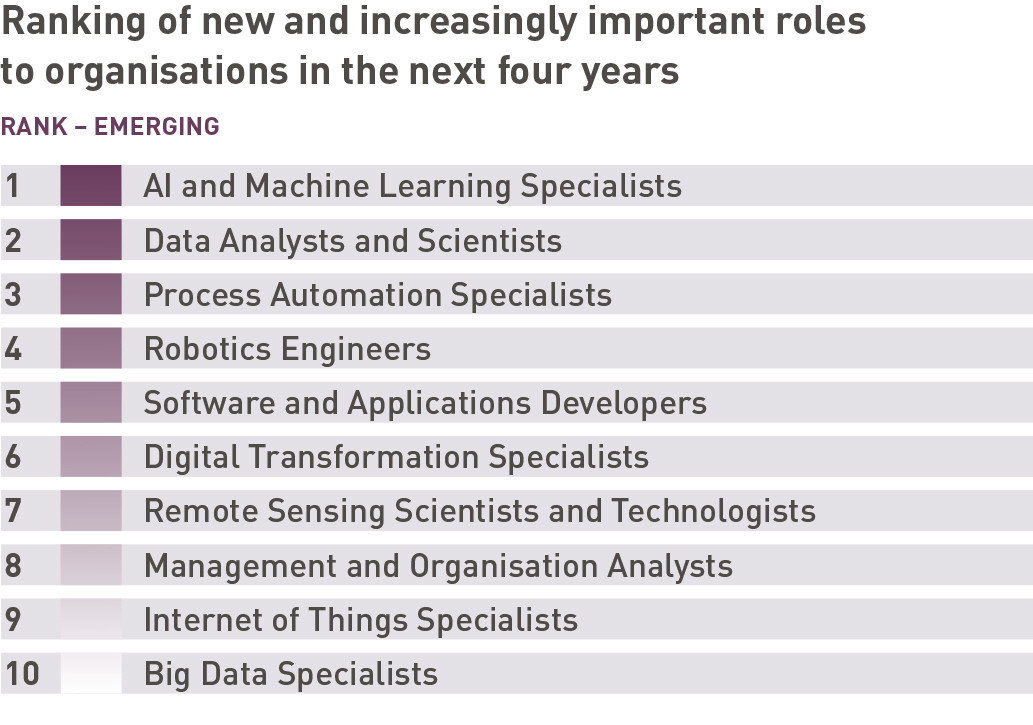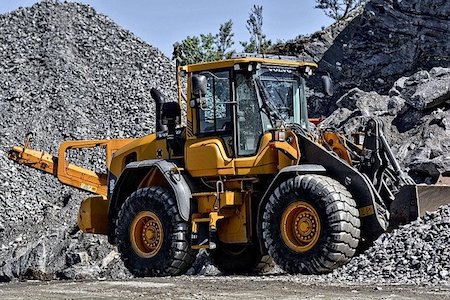The mining industry has always played a crucial role in shaping the global economy. From coal and gold to diamonds and rare earth metals, mining operations have fueled industrial growth and provided job opportunities for millions of people worldwide. In this blog post, we will delve into the world of mining jobs – uncovering the diverse range of roles available, the skills required, and how you can kickstart a rewarding career in this thriving industry.
Why Choose a Career in the Mining Industry?
Before we dive into the specific job opportunities within the mining industry, let’s take a moment to understand why it is an attractive field for many professionals.
1. High Earning Potential
One of the primary reasons individuals gravitate towards mining jobs is due to their high earning potential. Across various roles within the industry, there are numerous opportunities to earn competitive salaries. Whether you’re working as an engineer or a geologist, your expertise and dedication can be richly rewarded in this sector.
2. Global Job Market
Unlike some industries that are localized or limited to specific regions, mining offers a truly global job market. Mining operations exist in almost every corner of the globe, providing ample options for those seeking international opportunities or remote work assignments.
3. Technological Advancements
The mining industry has witnessed significant technological advancements over recent years. This means that professionals entering this field can benefit from working with state-of-the-art equipment and tools. Embracing emerging technologies such as drones, autonomous vehicles, and data analytics not only enhances efficiency but also allows for continuous professional development.
Top Job Roles in the Mining Industry
1. Mining Engineer
A mining engineer plays a crucial role in the mining industry. They are responsible for planning, designing, and overseeing the extraction of minerals from the earth. These professionals use their expertise to ensure the efficient and safe operation of mining projects. They analyze geological data, assess the feasibility of mining operations, and develop strategies to maximize productivity.
Mining engineers also manage the implementation of mining techniques and equipment, ensuring compliance with environmental regulations. Their work involves collaborating with geologists, surveyors, and other professionals to optimize resource extraction. With their knowledge and skills, mining engineers contribute to the sustainable growth of the mining industry.
2. Geologist
Geologists play a crucial role in the mining industry. They are responsible for studying the Earth’s structure, composition, and history to identify potential mineral deposits. By analyzing geological data, such as rock samples and seismic information, geologists determine the viability of mining operations. They assess the quality and quantity of minerals, as well as the environmental impact of extraction processes.
Geologists also contribute to mine planning and safety measures by evaluating the stability of mining sites and monitoring ground conditions. Their expertise helps optimize resource extraction and ensure sustainable practices in the mining industry. Geologists are essential in maximizing the efficiency and profitability of mining operations while minimizing environmental risks.
3. Environmental Specialist
An Environmental Specialist in the Mining Industry plays a vital role in ensuring sustainable practices and minimizing the environmental impact of mining operations. They are responsible for conducting environmental assessments, monitoring air and water quality, and developing strategies to mitigate pollution. These specialists collaborate with mining companies to implement environmental management plans, ensuring compliance with regulations and promoting responsible mining practices.
They also work towards minimizing habitat destruction, conserving biodiversity, and managing waste disposal. Additionally, they conduct research on new technologies and techniques to improve environmental performance in the mining sector. Overall, Environmental Specialists contribute to the balance between mining activities and environmental preservation.
4. Heavy Equipment Operator
A Heavy Equipment Operator in the Mining Industry plays a crucial role in the extraction and transportation of valuable minerals and resources. They operate heavy machinery, such as excavators, bulldozers, and dump trucks, to perform various tasks, including digging, loading, and moving materials. These skilled professionals ensure the smooth operation of mining activities by following safety protocols and maintaining equipment.
They are responsible for ensuring efficient production and minimizing downtime. Heavy Equipment Operators in the Mining Industry must have excellent hand-eye coordination, spatial awareness, and the ability to work in challenging environments. Their expertise is vital in maximizing productivity and ensuring the success of mining operations.
5. Metallurgist
A metallurgist is a professional who specializes in the study, extraction, and processing of metals within the mining industry. They play a crucial role in ensuring the efficient and sustainable production of metals from various sources such as ores and minerals. Metallurgists are responsible for conducting research and development activities to improve extraction techniques, enhance metal quality, and minimize environmental impact.
In the mining industry, metallurgists work closely with geologists, engineers, and technicians to determine the most effective methods for extracting metals from the earth. They analyze the composition of ores, develop metallurgical processes, and oversee the operation of equipment and machinery involved in the extraction and refining of metals. Metallurgists also conduct tests and experiments to evaluate the properties and performance of metals, ensuring they meet industry standards and customer requirements.
Moreover, metallurgists contribute to the development of new technologies and innovative solutions to address challenges in the mining industry. They play a vital role in optimizing production processes, reducing costs, and improving safety measures. With their expertise, metallurgists contribute to the sustainable growth and advancement of the mining industry by ensuring efficient utilization of resources and minimizing environmental impact.
Essential Skills for Success
While specific skills vary depending on the job role within the mining industry, several key competencies are universally sought after:
1. Technical Proficiency
Professionals working in the mining industry should possess a strong technical understanding of their respective roles. This may include knowledge of relevant software applications, familiarity with specialized equipment operation, or expertise in geological survey techniques.
2. Safety Awareness
Safety is of paramount importance in the mining industry, and professionals are expected to prioritize it at all times. A thorough understanding of safety protocols, risk assessment, and emergency response procedures is essential for any mining job.
3. Problem-solving Abilities
Mining operations often present complex challenges that require innovative solutions. Having strong problem-solving skills enables professionals to tackle unexpected issues and find efficient ways to optimize productivity or mitigate risks.
4. Effective Communication
Effective communication is vital in the mining industry, where collaboration between different teams and stakeholders is crucial. Professionals should be able to convey information clearly, listen actively, and adapt their communication style as needed.
5. Adaptability and Resilience
Working in the mining industry can be physically demanding and involve working in remote locations or challenging environments. Being adaptable, resilient, and able to work under pressure are important qualities for success in this field.
How to Kickstart Your Mining Career
If you’re interested in pursuing a career in the mining industry, here are some steps you can take to get started:
1. Gain Relevant Education
Depending on your desired role within the mining industry, acquiring a relevant education is a critical first step. Research universities or vocational training programs that offer courses in fields such as mining engineering, geology, metallurgy, or environmental science.
2. Seek Internship Opportunities
Internships provide invaluable hands-on experience and allow you to apply what you’ve learned in a real-world setting. Reach out to mining companies or consulting firms for internship opportunities that align with your career goals.
3. Network within the Industry
Networking plays a vital role in any career path, including the mining industry. Attend industry conferences, join professional associations related to your field of interest, and connect with experienced professionals through online platforms like LinkedIn.
4. Stay Updated on Industry Trends
Staying updated on industry trends in the mining industry is crucial for professionals and businesses alike. By keeping abreast of the latest developments, one can gain valuable insights into market conditions, technological advancements, and regulatory changes. This knowledge empowers individuals to make informed decisions, identify emerging opportunities, and stay ahead of competitors.
Monitoring industry publications, subscribing to newsletters, attending conferences, and joining professional associations are effective ways to stay updated. Engaging in networking activities and participating in online forums also provide opportunities to exchange ideas and learn from industry peers. Ultimately, staying updated on mining industry trends is key to remaining competitive and maximizing success in this dynamic sector.
5. Pursue Professional Certifications
Pursuing professional certifications in the mining industry can greatly enhance your career prospects. These certifications validate your expertise and knowledge in specific areas relevant to the industry. They demonstrate your commitment to continuous learning and professional development. By obtaining certifications such as Certified Mine Safety Professional (CMSP) or Certified Mining Professional (CMP), you can showcase your skills in areas like mine safety, environmental management, or mineral processing.
These certifications not only equip you with specialized knowledge but also increase your credibility among employers and colleagues. Moreover, they open doors to new job opportunities and higher positions within the mining industry. Take the initiative to pursue professional certifications and unlock your potential in the mining sector.
Conclusion
The mining industry offers a plethora of exciting career opportunities for individuals looking for challenging work environments, global job prospects, and high earning potential. Whether you aspire to be a mining engineer, geologist, or environmental specialist, acquiring the right skills and qualifications can open doors to a rewarding career in this ever-evolving industry. By staying informed about industry trends and continuously developing your expertise, you can position yourself for success in the lucrative world of mining jobs.






